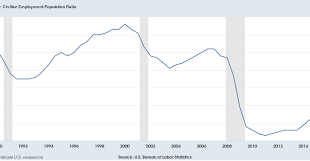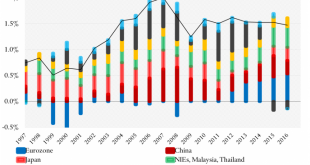Alan Blinder published recently two columns on the WSJ (here and here) on the need to exercise fiscal restraint. In both cases he complains that the fiscal deficit is too large. Note that he is not saying that this is always the case, he emphasizes that in the second and most recent piece. The reason, as always, is that we are close to full employment. In his words:"... today we are back at full employment, or perhaps beyond it, ad economic growth kooks solid. The economy doesn't need...
Read More »The terrible price of austerity
In August 2014, I wrote this post arguing that harsh austerity during the Depression caused Hitler's rise to power. At the time, my argument seemed controversial, at least in Germany. There, it is not the austerity of 1930-32 that is blamed, but the debt-driven hyperinflation of a decade earlier. Germans remain terrified of both inflation and debt to this day.I am certainly not the only person to identify a causative link between austerity and Hitler. Here is Paul Krugman slapping down...
Read More »Raúl Ilargi Meijer — Austerity, Bloodletting and Incompetence
Punxsutawney Phil Hammond, the UK chancellor, presented his Budget yesterday and declared five more years of austerity for Britain. As was to be expected. One doesn’t even have to go into the details of the Budget to understand that it is a dead end street for both the country and for Theresa May’s Tory party.So why the persistent focus on austerity while it becomes clearer every day that it is suffocating the British economy? There are many answers to that. Sheer incompetence is a major...
Read More »Bill Mitchell — Running trains faster but leaving more people on the platform is nonsense
Earlier in the week I was in Britain. Walking around the streets of Brighton, for example, was a stark reminder of how a wealthy nation can leave large numbers of people behind in terms of material well-being, opportunity and, if you study the faces of the people, hope. I am used to seeing poverty and mental illness on the streets of the US cities but in Brighton, England it very visible now as Britain has struggled under the yoke of austerity. Swathes of people living from day to day...
Read More »Bill Mitchell — Addressing claims that global financial markets are all powerful
The United Nations Trade and Development Report 2017 was published last week and carried the sub-title “Beyond Austerity: Towards a Global New Deal”. It is amazing that 9 years after the crisis emerged we are still discussing austerity and its on-going damaging consequences. Effectively the crisis interrupted the neoliberal agenda to increase the incomes shares of the elites at the expense of the workers, with growth being a secondary consideration if at all. Austerity was the means by...
Read More »Lars P. Syll— Public debt — an economic necessity
Superb Bill Vickrey quote.Lars P. Syll’s BlogPublic debt — an economic necessity Lars P. Syll | Professor, Malmo UniversityAlsoNeoliberal ‘ethics’
Read More »IMF Provides Cover for Europe’s Dysfunctional Currency Union
The Council on Foreign Relations’ Brad W. Setser has produced a couple of interesting blogposts on Germany’s fiscal policies of late. The first one, titled “Germany Cannot Quit Fiscal Consolidation,” was published at the end of August. On September 18th, the second one appeared, titled “The Global Cost of the Eurozone’s 2012 Fiscal Coordination Failure.” The latter is more limited in scope and draws heavily on a recent report by the Banque de France. Setser elaborates on the rather...
Read More »Alan Auerbach and Yuriy Gorodnichenko — Fiscal stimulus in downturns is safe even when debt is high
Government spending in a recession can boost a country’s economy without permanently bloating its public debt, even if the debt is already quite large, researchers told an influential group of central bankers in Jackson, Wyoming, on Saturday. “Expansionary fiscal policies adopted when the economy is weak may not only stimulate output but also reduce debt-to-GDP ratios,” University of California, Berkeley, professors Alan Auerbach and Yuriy Gorodnichenko said in a paper presented at the...
Read More »Bill Mitchell — Europe – the deliberate wastage of its youth continues
Earlier this month (August 11, 2017), Eurostat published the latest European Union data for – Young people in the EU: education and employment. This data now allows us to track the fortunes of three age cohorts – 15-19, 20-24 and 25-29 years since before the crisis to the end of 2016. So a teenager prior to the crisis (2007) would be transiting into the 25-29 years cohort in 2016. One of the disturbing trends shown in the data is the increasing number of young people in the older ‘youth’...
Read More »Bill Mitchell — Jacques Delors – a failed leader not a champion of a prosperous Europe
It is amazing how history is revised when it is convenient. It is also amazing how the same events, that from my perspective are rather clear, can be diametrically interpreted by others, who want to run a different agenda. A good example of these phenomena can be found in a recent UK Guardian article (August 11, 2017) – Jacques Delors foresaw the perils of austerity. How we need his wisdom now. When I saw the headline I thought it must have been an article seeking to elicit some sort of...
Read More » Heterodox
Heterodox



